Stax Songwriter Series
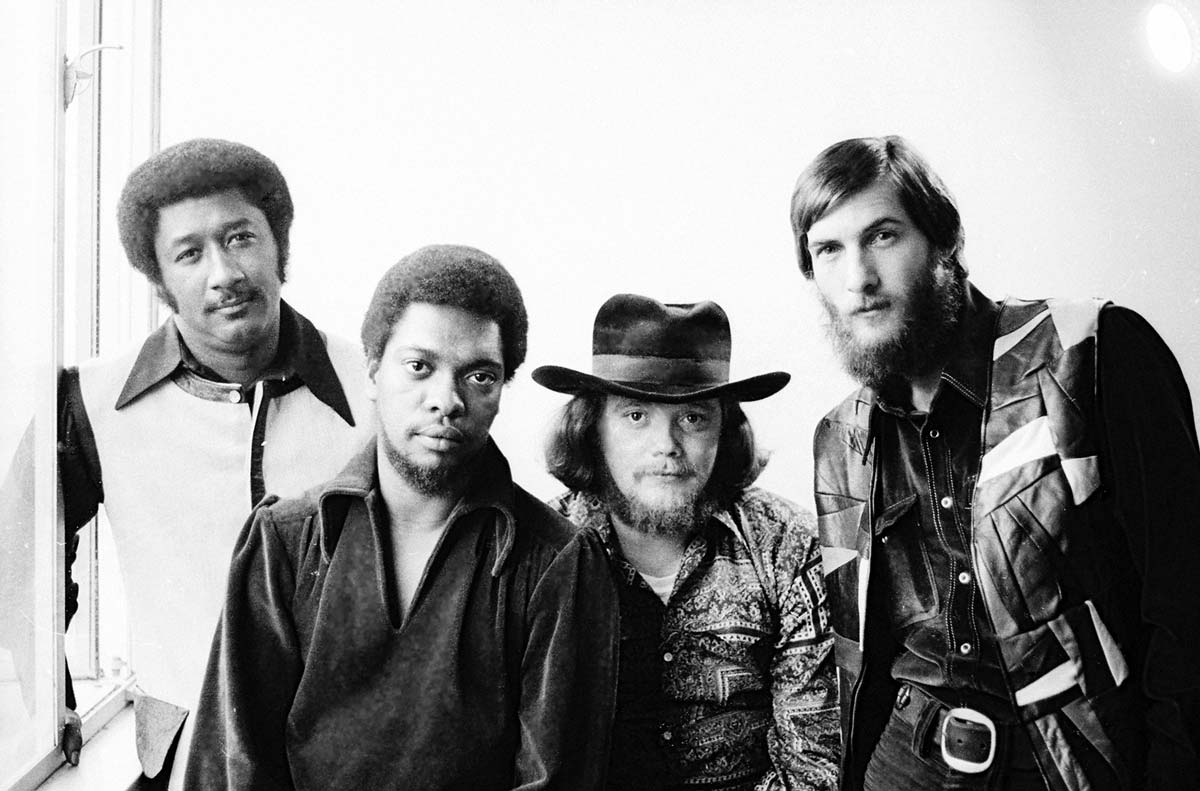
Booker T & the M.G.’s – Courtesy of the Deanie Parker Collection
By the end of its tenure as one of soul music’s flagship labels during the 1960s and ‘70s, Stax Records became a diverse hub of sounds through its beat. Numerous artists who released products via the label produced them in studios and on stages far from Stax’s humble home in Memphis, Tennessee.
However vast the label’s output became, at the quintessence of its trademark sound stood a close-knit group of four Memphis-based musicians whose work as Stax’s studio house band laid the groundwork for the spread of Memphis soul throughout the globe.
Billed as Booker T. & The MG’s, the group’s original lineup featured Booker T. Jones on organ, Steve Cropper on guitar, Al Jackson, Jr., on drums, and Lewie Steinberg on bass. Famously, Donald “Duck” Dunn replaced Steinberg shortly after the ensemble’s inception, filling the role through the group’s remaining LPs on Stax.
Booker T & The MG’s formed in 1962, with the band’s original members convening in an impromptu fashion. Chasing the success of their hit single “Last Night,” Stax’s first house band, The Mar-Keys, had gone on the road to support the 1961 single. Weary from life on tour, Cropper departed The Mar-Keys and returned to Memphis, positioning himself as their de facto studio manager, producing under the direction of Stax co-founders Jim Stewart and Estelle Axton. Having made his way into the studio through his acquaintance with budding songwriter David Porter, keyboardist Booker T. Jones fell in as a regular in the Stax studio, as well as its record store. Jones, along with Lewie Steinberg, and Al Jackson, Jr. - already known locally as a second-generation musical ace, born to a renowned jazz bandleader -showed up to play on a session booked in the studio for Billy Lee Riley.
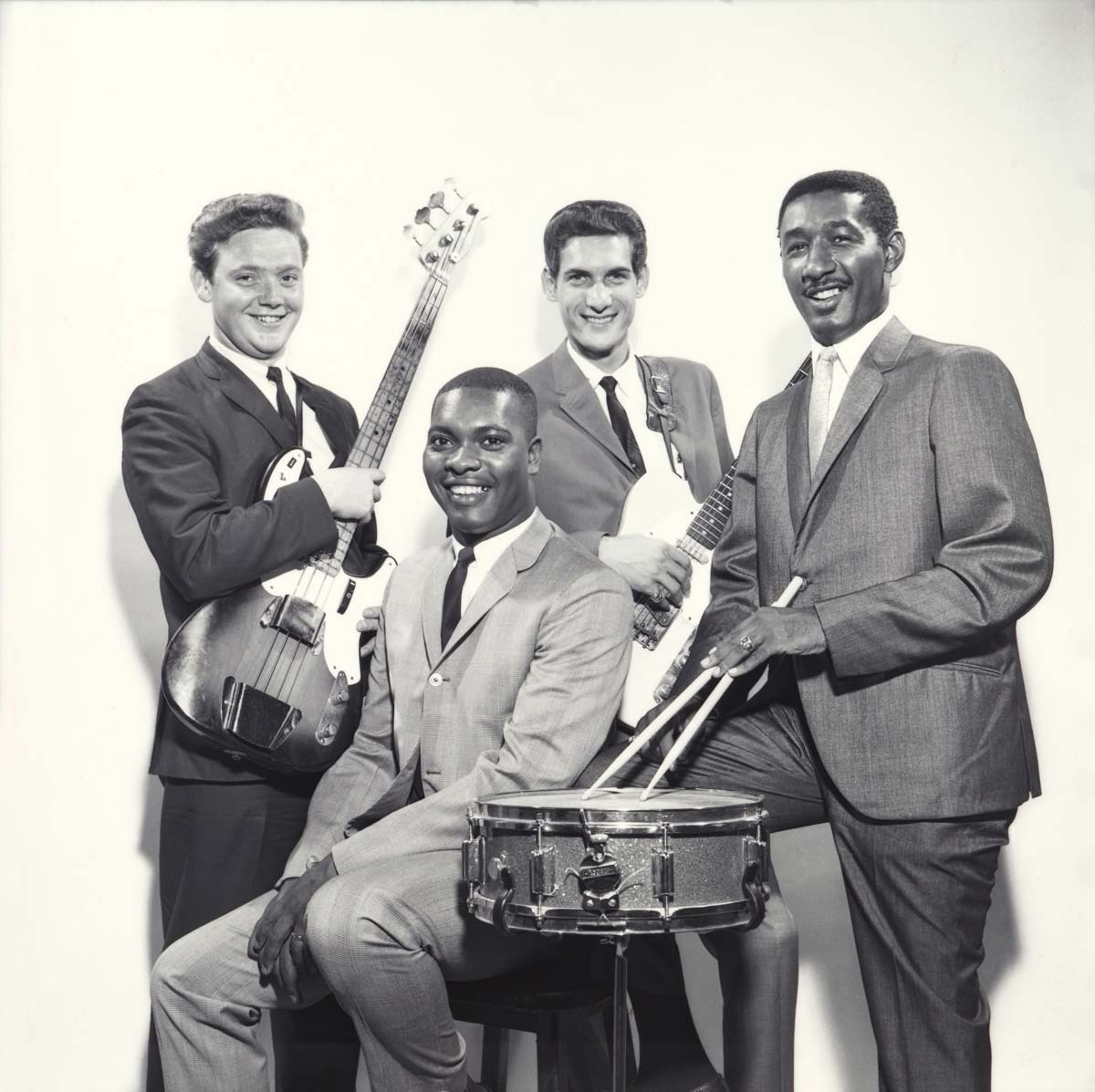
Booker T & the M.G.’s – Courtesy of the Stax Records Archive
Upon Riley’s tardiness, the ensemble embarked on a jam session, coining a riff that sparked the interest of Jim Stewart, who committed the improvised tune to tape. That song, “Behave Yourself,” warranted a B-side, resulting in the recording of another groove, which the band dubbed “Green Onions,” a soon-to-be smash hit that would turn the rhythm and blues market on its head.
Without a name for the group, the four men turned to a previous collective of Stax session players who’d taken on the moniker of “The Triumphs,” inspired by the Triumph Motor Company, opting for The M.G.’s, modeled after Britain’s sleek sports car brand. The group agreed, after an unfavorable correspondence with the car manufacturer regarding the naming convention, that the group’s name would stand as an acronym for “The Memphis Group.”
“Green Onions” climbed to No. 3 on Billboard’s Hot 100 chart and sat at No.1 on the R&B chart. The group would quickly get to work backing nearly all the recording sessions conducted in Stax’s early period, providing instrumental accompaniment for Otis Redding, Sam & Dave, Rufus Thomas, William Bell, and more.
Though Booker T. & The M.G.’s continued steady production of LPs and singles, they would not prove to be consistent mainstays on the upper ranks of the charts with their original compositions.
In the intermittent absence of Booker T. Jones, who left Memphis to study music at Indiana University, the group enjoyed a hit in “Boot-Leg,” in 1965, assisted by Isaac Hayes on keys and Packy Axton of The Mar-Keys, who co-wrote the song. It wouldn’t be until “My Sweet Potato” backed with “Booker-Loo” that the core four MG’s -Jones, Cropper, Dunn, and Jackson – would score proper hits as a unit.
1967’s “Hip Hug-Her” provided the group with a return to rotation and sales supremacy reaching the Top Ten on Billboard’s R&B chart. The events of the late 1960s spelled dissenting journeys for the individual members of Booker T. & The MG’s, beginning with the group’s namesake. Booker T. Jones stepped out on his own to compose and arrange the score for 1968 film Up Tight, working closely alongside the film’s production during an extended stay in Paris, France. He and Cropper separately moved their musical ambitions outside of Memphis, setting up shop in California, focusing their eyes on individual accolades in songwriting and production.
Their departure from Memphis wouldn’t hinder seminal LPs from the band, such as a collection of Beatles covers known as McLemore Avenue and the experimental soul of Melting Pot. But the untimely death of Al Jackson, Jr., in October 1975, permanently altered the band’s trajectory.
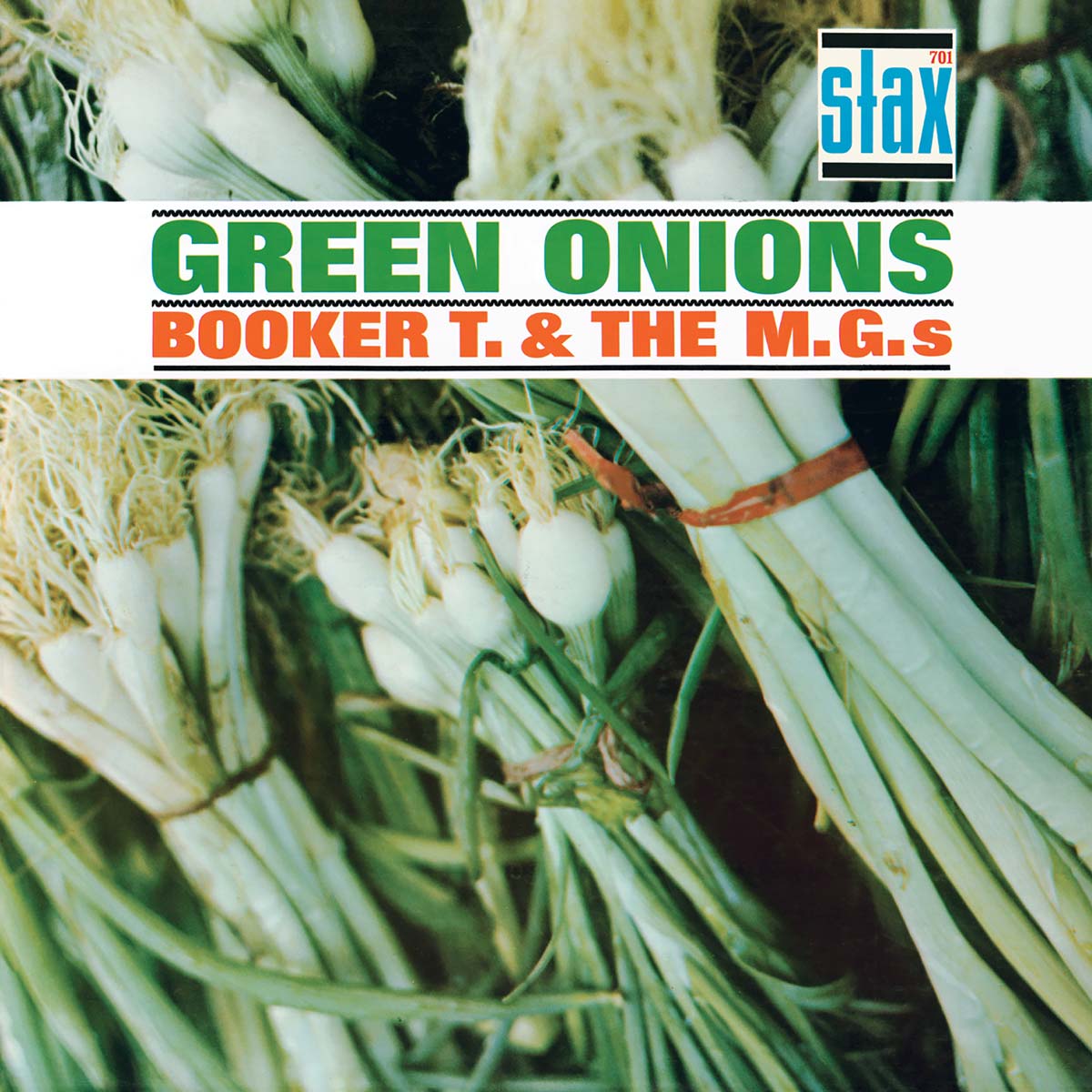 Prior to Jackson’s passing and thereafter, various iterations of the band saw replacements on drums (Willie Hall, Steve Potts), organ (Carson Whitsett), and guitar (Bobby Manuel).
Prior to Jackson’s passing and thereafter, various iterations of the band saw replacements on drums (Willie Hall, Steve Potts), organ (Carson Whitsett), and guitar (Bobby Manuel).
As lifelong contributors to the craft of American popular music, Jones, Cropper, and Dunn separately provided instrumental support, impacting the careers of Bill Withers, Willie Nelson, Elvis Presley, Rod Stewart, Ringo Starr, and more.
In 1992, Booker T. & the M.G.’s was inducted into the Rock and Roll Hall of Fame, and in 2007, the group was given a Grammy® Lifetime Achievement award.
The Songwriters Series ARCHIVE

Frederick Knight
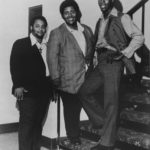
Rance Allen

The Mad Lads
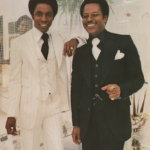
Carl Hampton and Homer Banks

Eddie Floyd and Al Bell

William Bell and Booker T. Jones
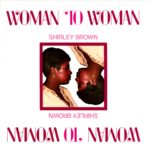
Eddie Marion, James Banks, and Henderson Thigpen

We Three (Bettye Crutcher, Raymond Jackson & Homer Banks)

Eddie Floyd and Steve Cropper
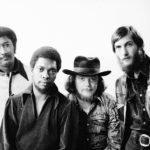
Booker T & the M.G.’s

Steve Cropper and Otis Redding


